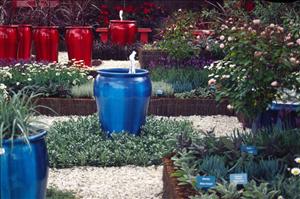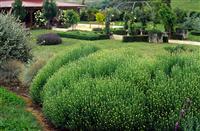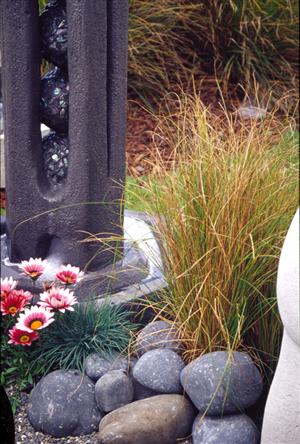Horticulture Certificate Options

There are Lots of Options.
You don't need a certificate to be successful in horticulture; but you do need the sort of knowledge that often (but not always), comes from studying a certificate.
Certificates come in all shapes and forms.
Some are able to be completed in a couple of days, and others take 2 or more years of serious study. A short certificate can never be as valuable as a long one though. The amount of study you do is always going to be proportional to the amount which you learn.
What Should a First Certificate Contain
Your first horticulture certificate needs to give you a "foundation" for developing skills and knowledge.
Horticulture is a science, and even the garden laborer who does little more than pull weeds will benefit by learning the "system".

Key aspects to achieve a systematic understanding of horticulture are:
- Basic Botany -When you understand botany you are able to identify plants easier (because you more readily notice botanical features that distinguish one from another); and understand how to care for them better (because you understand how the way you treat them can impact upon their tissues in either a positive or negative way).
- Plant Identification -Plants are classified in a very logical and systematic way. You need to be able to first identify key plant families. This provides a framework for more readily identifying plants in the families. There are also often "common" cultural requirements and characteristics in families eg. If I can identify a plant as being in the Lamiaceae family, I know I can probably propagate it from cuttings.
- Soils, Nutrition, Water Management, Pest and Disease -There are systems to all of these things, and a proper foundation needs to be established in at least these key areas. Without that, it is much harder to learn about the needs of specific plants.
Any certificate which provides a sound grasp of these key areas should leave you able to identify at least 200 plants, describe some of the distinguishing botanical characteristics of each, and intelligently discuss the needs or treatment of each with respect to soils, nutrition, water and plant health
 Standards vary between Colleges (and Countries)
Standards vary between Colleges (and Countries)
*The number and arrangement of accreditation levels is different from country to country. eg. Certificate 2 in the UK may be closer to Certificate 3 or 4 in Australia
*Accreditation is not necessarily as important as you may think
eg. Graham Coote, Australian Institute of Horticulture National Editor stated in Australian Horticulture magazine, July 2005 refers to the Australian accredited courses saying "Today's horticulture certificate has virtually no botany content. Instead of learning to identify hundreds of plants over a number of years, students study just one unit..." The article states"Grahame Coote discovers how curricula are set and why it appears Australia's horticultural brain bank is being anaesthetised"
Note: Australia's system is not alone in such criticism though. Funding pressures and other issues have caused a deterioration of standards in many accredited courses around the world, but not everywhere.
OPTIONS OFFERED BY ACS
Option 1.
Foundation Certificates in Horticulture
These are a very intense courses.Most students are more likely to take 150 hrs to complete assignments, plus additional time to prepare for exams.
Nevertheless, the course is perhaps one of the fastest (and cost efficient) ways to get a firm foundation and start in the horticulture industry.
Option 2.
Certificate in Horticulture (VHT002)
This covers all of the foundation knowledge found in a foundation certificate, plus a lot more. Being much longer (700 hour) course, it goes a great deal further in scope, if not depth; and there is more reinforcement of your learning, so less likelihood of you forgetting what you learn if you neglect it for a long time.
Unlike the Foundation Certificates, this course allows you to also undertake "specialist" studies in the second half of the course. In essence, the first half provides the foundation (as does the Foundation Certificates), then the second half provides an education in a specialist area of your own choosing, such as landscaping, propagation or organics (There are other options also)
Option 3.
Certificate in Horticulture (Self Designed)
ACS provides a unique option for you to create a 600 hour certificate by combining your own choice of subjects. There are over 100 to choose from, which gives you thousands of possible combinations.
If you already have a foundation in horticulture, this allows you to avoid repeating foundation studies, and to concentrate on learning new things.
If you have not yet achieved a strong foundation enabling you to identify and describe at least 200 plants, we generally insist you undertake Horticulture I and II as the first two of your six subjects (modules)
If you wish to design your own certificate, do this by using our Course Counselling Service.
You may also be interested in....
Exceptional training for a serious business or career -lots of different options to specialize.
View Course